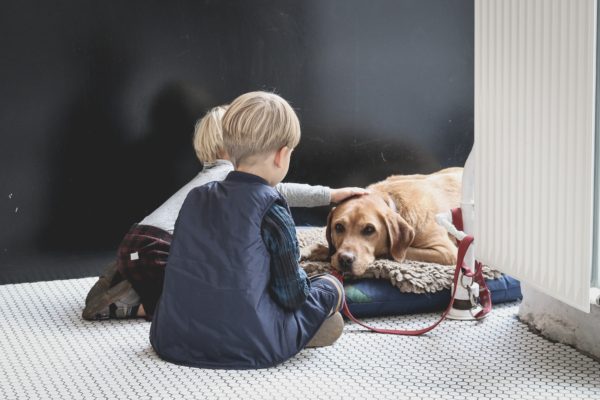Parenting & Pets @ World Super Moms
Pet Moms: Raising Your Two and Four-Legged Kids Together
People might not understand how complicated it can be to add a new human member to your household when your pets have always been your children. It sounds crazy, but many of us that have been long-time pet owners and have since become first time parents feel a little apprehensive about the relationship between our fur babies and brand new human ones. You would probably never expect that you would feel bad that your dog isn’t getting as much attention as she used to because of the new baby. You wouldn’t expect that you would find yourself worrying about how your cat is going to get along with your newborn child. These are, however, a reality for those who love their animals and are beginning the journey into parenthood. Here’s the good news. As long s you are responsible and follow good safety practices, Your pet and your child are going to be just fine.
Pets and Babies
First thing’s first. We need to talk about your pet and your new baby. One of the most common questions and concerns on the topic of pets and babies is whether pets in the home are a detriment to an infant’s health. It’s easy to understand why parents would be concerned about negative health effects of pets on young children. We tend to think of babies as being fragile and highly-susceptible to illness, while we think of our animals to be furry lovable germ carriers. Interestingly enough, however, research has shown that raising children in a home with pets can actually be beneficial to their health and development. The prevailing theory is that early contact with the germs, dander, and allergens your four-legged friend brings in, help to boost your child’s immune system and to prevent or lessen allergies in the future. To support this, studies have found that children with pets in the home, had significantly lower numbers of respiratory infections and illnesses requiring antibiotics than children raised in pet-free homes. Additionally, another study found that children in homes with a cat were half as likely to develop cat allergies than children who were not exposed to cats during the first year of life. So, while it is important to protect your child from those nasty germs and viruses, don’t worry too much about Fido and Fluffy.
The other component of kids and pets that we look at is, of course child safety in a home with animals. Here, we have to address some misconceptions. First of all, some people will tell you about stories where a family pet attacks a small child, but in reality, this is far from common. If you are a good and responsible pet owner, and have formed a strong bond with your animals, they will quickly bond with your child as well. Your pets will likely decide ultimately that they would rather cuddle with the tiny human. That brings us to two additional points. One, your pets will likely be cautious to not hurt your small child, but they are still animals and should not be left unattended with very young children. Your cat or dog trying to snuggle with your little one at naptime may be well-meaning, but also presents a suffocation risk. Allow your pets and children to get to know each other and learn to love one another under your supervision. On the flip side of this, don’t expect your pet to immediately fall in love with your child like you did. Babies and young children are basically an alien life-form in your house. They take some getting used to for everyone. Pets are often creatures of habit and get a bit nervous about change. Don’t be offended when your fur baby doesn’t immediately warm to your people baby. They are trying to navigate the changes and adjust to the new norm, just like you.
Child Development
In recent years, researchers have taken a closer look at the impact of companion animals on childhood development. Numerous studies have been conducted in this area which have overwhelmingly found the same thing. Pets are extremely beneficial to children’s development. A companion animal such as a dog, cat, etc, helps children cultivate empathy and improved self-esteem. Furthermore, research has indicated that pets can have a dramatic impact on children’s emotional well-being while offering relief from depression and anxiety. When it comes to positive growth and development, all signs point to pets being a valuable resource for children.
Considerations
At this point, we have made the case for children and pets under the same roof. Remember, however, responsibility is key. Make sure that you know your pet well. Just like us, they have unique personalities and experience. Dogs are often especially patient with small children who want to climb and jump on them, but there are risks we have to be mindful of. As parents and pet owners, we have to protect our pets from the curious toddler who doesn’t know any better, while working to keep our children safe from a potentially defensive pet. Consider the history of your pet. If you have a rescue animal that has been abused in the past, they are more likely to be afraid and might not respond well to loud and rambunctious children.
Remember that bringing a new child home is a learning experience for everyone. Your baby is learning all about this new world, your pet is trying to adjust to this new family member, and you are the one that has to tie it all together while continuing to learn yourself. It may feel overwhelming at times, but remember, if you focus on teaching and showing your children (both four and two-legged ones) love, you can’t go wrong.
— World Super Mom Writer Contributor Anonymous

